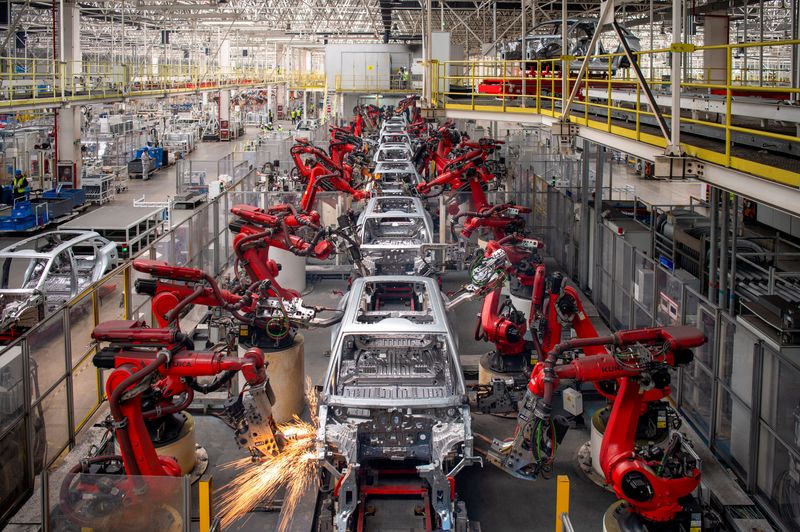BERLIN (Reuters) - China has overtaken Germany in the use of robots in industry, an annual report published by the International Federation of Robotics (IFR) showed on Wednesday, underscoring the challenges facing Europe's biggest economy from Beijing.
In terms of robot density, an important indicator for international comparisons of the automation of the manufacturing industry, South Korea is the world leader with 1,012 robots per 10,000 employees, up 5% since 2018, said the IFR.
Singapore comes next, followed by China with 470 robots per 10,000 workers - more than double the density it had in 2019.
That compares with 429 per 10,000 employees in Germany, which has had an annual growth rate of 5% since 2018, said IFR.

"China has invested heavily in automation technology and ranks third in robot density in 2023 after South Korea and Singapore, ahead of Germany and Japan," said IFR president Takayuki Ito.
Germany has in the past relied heavily on its industrial base and exports for growth but is facing ever tougher competition from countries like China. It expects economic contraction for the second year running in 2024, making it the worst performer among the Group of Seven rich democracies.